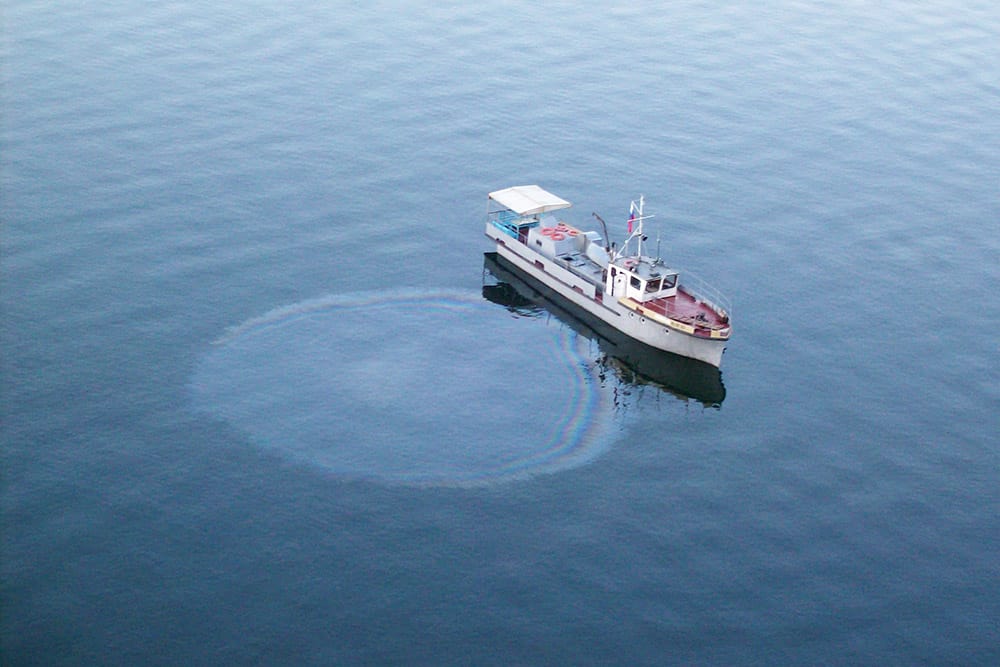Marine Spills: Why They Happen and How to Avoid Them

There have been many improvements over the years in control technologies for marine spills. These came about after 2 of the most significant marine spills in Australian History, in 2009 (Great Barrier Reef) and 2010 (Sunshine Coast). Despite these improvements, these spills still wreak havoc on the marine environment.
The Australian Maritime Safety Authority coordinates the response to marine spills. They do so under the National Plan to Combat Pollution of the Sea by Oil and Other Noxious and Hazardous Substances. As a business, you have environmental obligations to uphold to avoid damaging the eco-system. Failure to comply can result in being liable for hefty fines.
At Ecospill, we have built a reputation as experts in our field. We specialise in supplying workplaces with spill kits to ensure they can respond to spills in a timely, effective manner. In this article, we discuss marine spills – why they happen, the damage they cause and how to avoid them.
WHAT IS CLASSIFIED AS A MARINE SPILL?
Any quantity of oil or other hazardous substance that spills or leaks into the ocean is a ‘marine spill’. Discharge from a vessel (including from packaged goods or washings of cargoes) is also classified as a ‘marine spill’. If the substance can be seen floating on or in the water, it’s more than likely illegal discharge.
Spills that typically happen in the ocean are oil spills, fuel spills, and other liquid spills, i.e. detergents, fertilisers, and sewage.
HOW DO MARINE SPILLS HAPPEN?
Human error, unfortunately, is a major cause of marine spills. According to The Australian Maritime Safety Authority, many of these spills are as a result of carelessness that was avoidable. The two biggest marine spills in global history were both linked to human error.
Poor containment, as well as equipment failure, also contributes to a large percentage of these spills. And then, there are natural disasters which can cause damage and flooding. Flooding pollutes our oceans by carrying hazardous substances from land into the sea.
Illegal dumping, though it does not account for many marine spills, is a factor worth mentioning. Some industries and people do not follow regulations surrounding the correct disposal methods. Hazardous substances are sometimes dumped directly into the ocean, or inland, which ends up entering the ocean anyways via stormwater.
ENVIRONMENTAL IMPACT
It’s likely that as many as thousands of marine spills occur daily, worldwide. These spills affect the marine environment through direct toxicity. They smother plants and animals and make their way onto the shorelines.
Oil spills are of particular concern. They result in huge economic loss and leave lasting effects on marine life and coastal communities. Oil’s toxicity and physical properties change with time. In addition to this, the chemicals used to help disperse it are also damaging to marine life.
MANAGING MARINE SPILLS
Spills happen, whether by pure unavoidable accident or through sheer negligence.
A key step in marine spill management is ensuring that your emergency spill kits are suitable for your work activities. Your equipment also needs regular and ongoing maintenance to make certain it’s in good working order.
The area of ‘marine spills’ doesn’t only involve managing spills out in the ocean. It’s about having effective stormwater control on land too. Without effective stormwater control in place inland, harmful substances can run off, ending up in the ocean.
The history of marine spills and their causes highlights the fact that it’s not enough to be well-equipped. It’s paramount that your staff go through high-quality training. This ensures that they know how to both prevent and respond to damaging spills.
HOW WE CAN HELP
Spills are never 100% avoidable. But as a business, you can ensure that you and your team have the training and equipment to manage spills effectively.
At Ecospill, we can help you meet your environmental obligations with ease. We provide a large range of quality spill kit supplies and environmental safety equipment to national industry. To truly get to know your business, our qualified consultants offer onsite visits. They can then propose simple, efficient and cost-effective solutions.
Please don’t hesitate to contact our friendly team who are happy to assist you.
